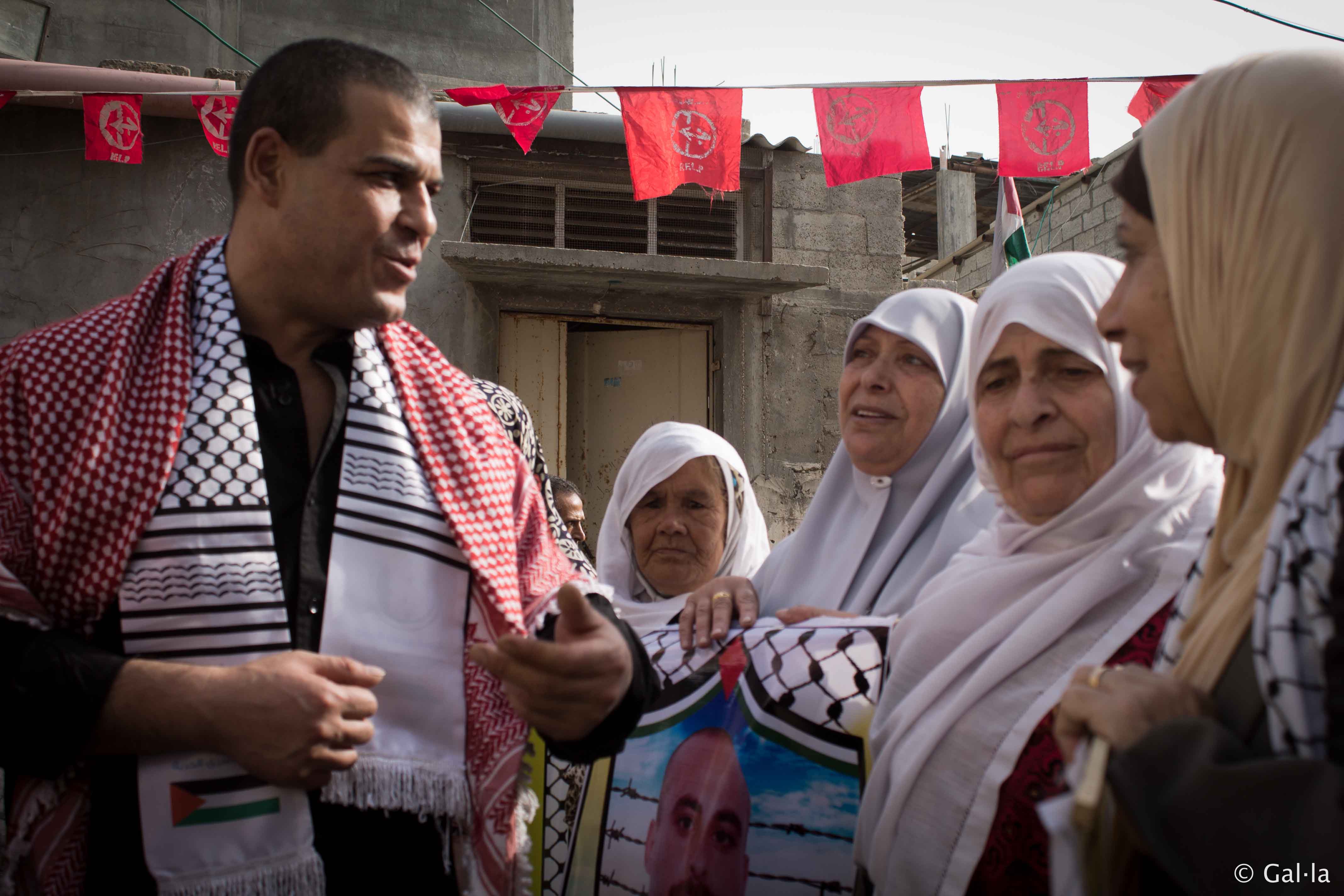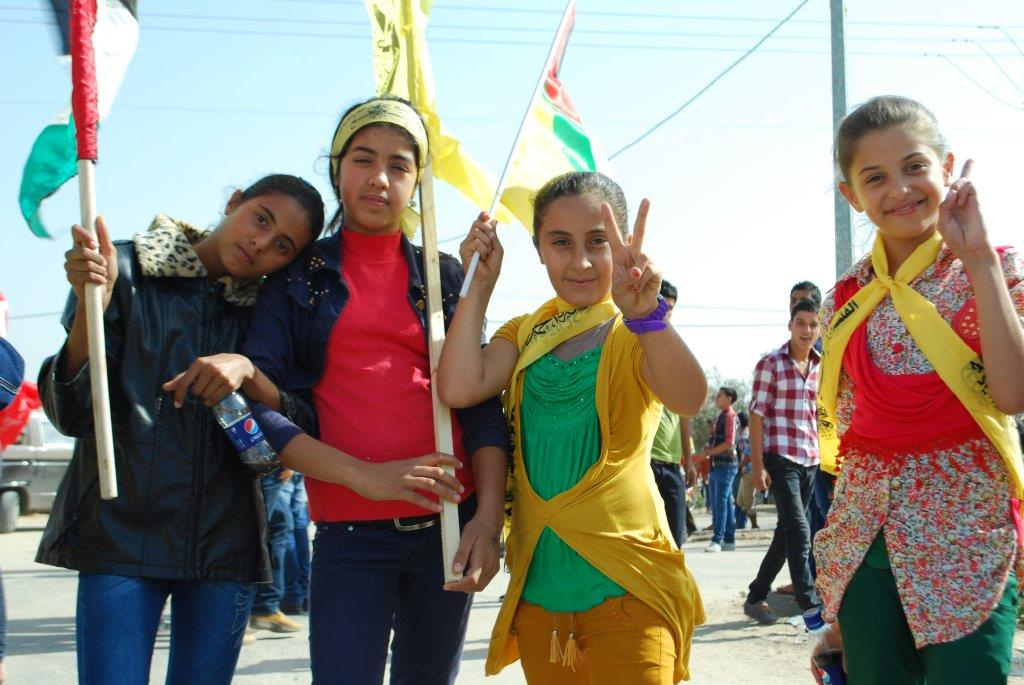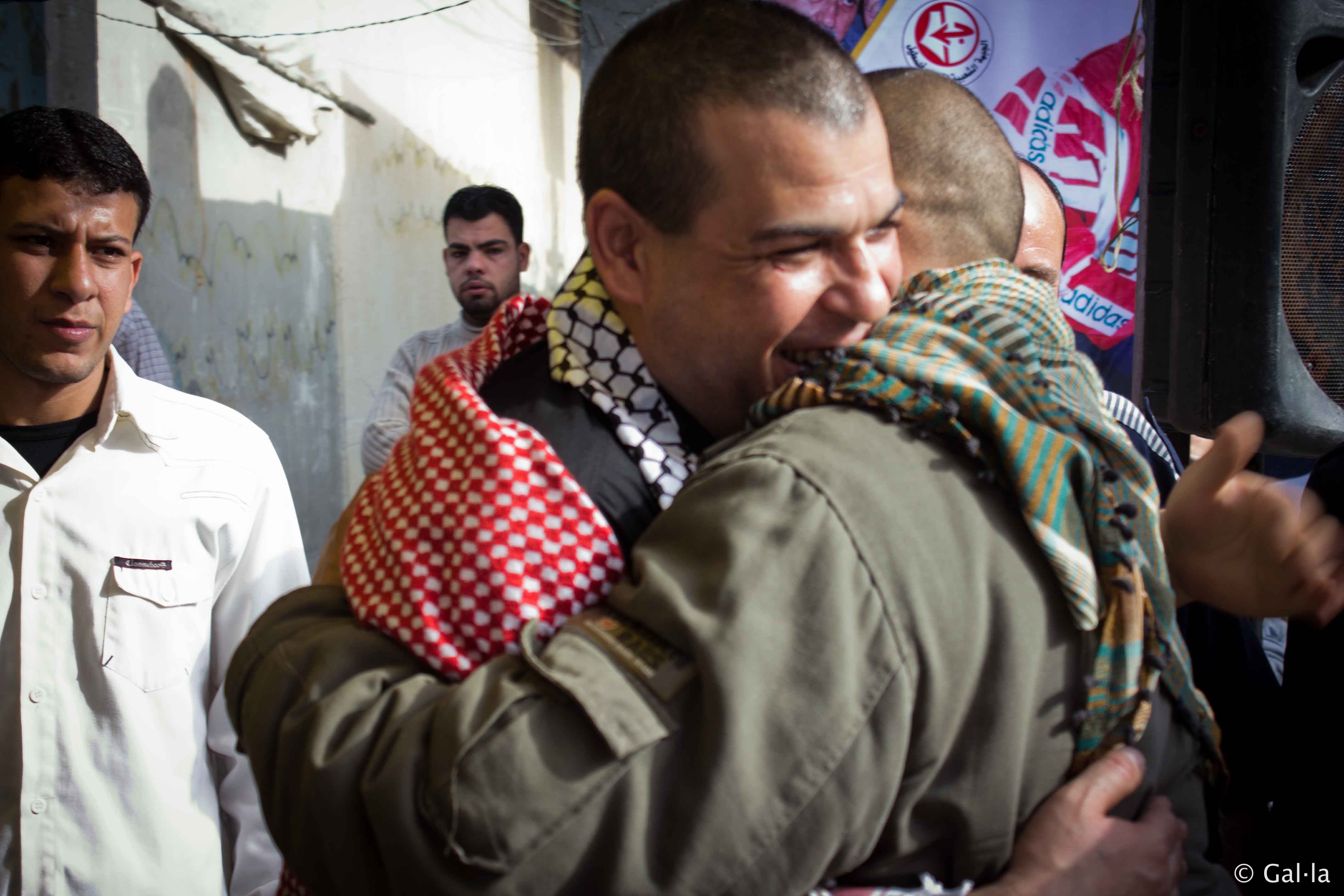Tag: Prisoner Release
-
“I’m very happy now beside my family,” newly freed prisoner says at Gaza rally
26th November 2013 | International Solidarity Movement, Marco Varasio | Gaza, Occupied Palestine On Monday morning, relatives and friends of Palestinian detainees, as well as Palestinian and solidarity activists, rallied at the International Committee of the Red Cross’ Gaza office to demonstrate their support of the Palestinian prisoners. The rally started with the chanting of slogan…
-
Photos: A hero returns to Gaza
5th November 2013 | International Solidarity Movement, Charlie Andreasson | Gaza, Occupied Palestine What could be a more appropriate theme for this Monday demonstration for prisoners than those recently released by Israel? Would it have been possible to have a different one? Possible, but hardly appropriate. On the street outside the Red Cross, a temporary stage…
-
Photos: Released detainees celebrate new freedom with supporters in Gaza Strip
2nd November 2013 | International Solidarity Movement, Gaza Team | Gaza, Occupied Palestine Five former Palestinian detainees freed overnight Wednesday in the Gaza Strip have received a resounding welcome. Their families have erected celebration tents outside each of their homes to receive supporters and delegations. On Thursday afternoon, an overflowing bus carried several dozen well-wishers…



